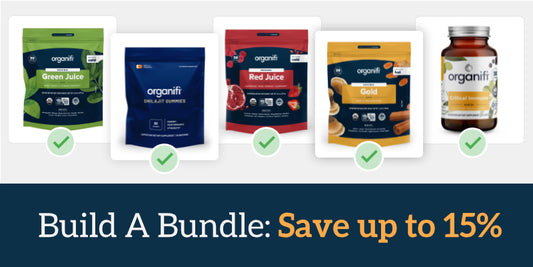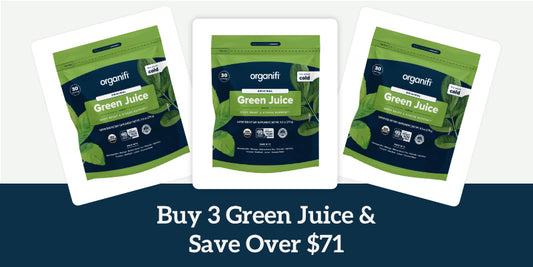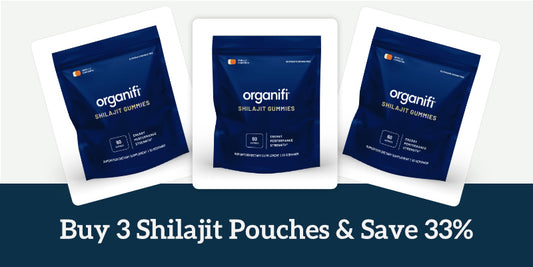Plant Protein vs Animal Protein - what’s best for you?
Protein is a vital part of a healthy diet; it’s the necessary building block of many of our body’s structures, from hair to muscle.
We need to consume about 0.36 grams of protein per pound of body weight per day. It is also recommended to eat some protein with every one of the three main meals (breakfast, lunch, and dinner.) But does the source of the protein matter?
What is the difference between plant and animal protein? Is there vegan complete protein? Why should we care?
Protein helps to build, repair, and maintain the physical body. Both plants and animals can provide excellent sources of protein, but there are some nutritional differences between the two. It’s important to learn what’s right for you and your body.
Since protein helps you attain your fitness and weight loss goals faster and more effectively than other food groups (it’s essential for muscle growth,) we thought we could jump into the plant protein vs animal protein debate and clear some myths. Here we’ll give you all the necessary tools to make an informed decision.
First things first:
What is Protein? What Makes it Complete?
The human body is made of 20% protein content; it’s a molecular structure present in organs, muscular tissue, bones, skin, nails and hair.
Proteins are made up of amino acids chains, and we need all 22 types of amino acids to function properly.
These amino acids are divided into essential, non-essential, and conditional:
- Essential Amino Acids: Histidine, Isoleucine, Leucine, Lysine, Methionine, Phenylalanine, Threonine, Tryptophan, and Valine.
- Non-Essential Amino Acids: Alanine, Asparagine, Aspartic Acid, Glutamic Acid.
- Conditional Amino Acids: Arginine (essential in children, not in adults), Cysteine, Glutamine, Glycine, Proline, Serine, and Tyrosine.
Our bodies cannot store protein like sugar, fat, and other macronutrients, so protein must come from the dietary intake on a daily basis. Furthermore, our bodies cannot produce the nine essential amino acids that some types of protein have.
In the plant protein vs animal protein match, the type of protein and whether or not it is “complete” is a source of controversy.
A complete source of protein contains all nine essential amino acids.
When comparing plant protein vs animal protein, many plant sources come up short in the essential amino acid list because they lack one or more amino acids. These are not considered a vegetarian or vegan complete protein. Animal sources of protein, on the other hand, tend to have all nine amino acids, making them reliable sources of complete protein.
Complete Sources of Protein
There are many sources of plant-based or vegan complete protein, see the table below. However, it’s important to note that all nuts, grains, and vegetables also contain various amounts of protein, from spinach to potatoes.

What About Protein Powder?
Knowing that protein is so important, that we can’t store it, and that we don’t produce the necessary amino acids to cover our needs, it’s clear that sometimes (like when we’re weight training or on a weight loss plan) we may need to turn to protein powders for help.
This begs the question between plant protein vs animal protein powders, which one is better?
Comparing Plant Protein vs Animal Protein Powders
For the purpose of this comparison, we’ll talk about whey protein vs plant-based proteins, since the former is the most popular animal-based protein powder available. However, there are other animal-based powders based on casein, another protein found in milk which presents its own set of neurodiverse challenges.
#1 Plant Protein vs Animal Protein: Sourcing
Have you ever wondered how is plant protein vs. animal protein powder sourced?
Whey protein results from the material left after cow milk is drained through a special filtration system. This “protein concentrate” is dried to form the protein supplements that we find on the market today.
Cattle raising for milk or meat uses more resources than other sources of animal protein.
Plant-based protein powders are generally sourced from vegetable crops. The process to turn them into a protein powder varies according to the crop. The protein is usually extracted from the soluble form of the source (for example, split peas) followed by drying and pulverization in most cases. This uses fewer resources to produce.
#2 Plant Protein vs Animal Protein: Sustainability
Due to the resources (like water, land, grain, energy, etc.) required to raise, maintain, and breed cattle, plant-based sources of protein and powder are considered more sustainable and environmentally friendly than their counterpart.
Additionally, for those concerned about animal welfare plant-based protein are the better choice; no animal is harmed or involved in the process of making it.
#3 Plant Protein vs Animal Protein: Nutrients
Whey concentrate contains varying degrees of disaccharide lactose – the sugar present in milk – which contributes to the wide range of total calorie amounts in whey protein supplements. It may be too high in sugar for some.
However, Whey protein may “improve active B12 and folate status” nutrients that are not as readily available in plant-based diets. B12 is one of the things vegan complete protein tends to lack. On the flip side, plant-based protein powders include other micronutrients, vitamins, and minerals not available in Whey.
#4 Plant Protein vs Animal Protein: Muscle Growth and Performance
Research shows there are no differences in body composition, muscle thickness, peak force, athletic performance, or force development between people who consume Whey Protein and Plant-based proteins to support their athletic lifestyle.
#5 Plant Protein vs Animal Protein: Digestion
Those who are lactose intolerant may not be able to use Whey protein or find it heavy to digest, leading to bloating, gas, irritation and more. Plant-based protein powders have fiber and natural enzymes that aid digestion. Nevertheless, food allergies still apply and celiacs must pay special attention to the ingredients of vegan complete protein powder.
#6 Plant Protein vs Animal Protein: Protein Content
Whey protein powders tend to have higher protein content when compared with their vegan protein powder counterpart. Boasting 20 to 30 grams per serving, compared to 12 to 18 grams average in plant-based ones.
#7 Plant Protein vs Animal Protein: Complete Protein Status
Whey protein is by default a complete protein, plant-based powders are not always considered “vegan complete protein” you must check the label to see if they are a mix of significant sources or have all nine essential amino acids.
#8 Plant Protein vs Animal Protein: Calories
Protein powders can vary drastically when it comes to calorie count, and that’s usually due to the added sugar content and other additives to make the flavor more palatable. In general plant-based proteins are lower in calories and overall sugar content than Whey supplements.
Organifi Vegan Complete Protein: why we went plant-based
The Final Countdown for us was simple: plant-based protein powders can be designed and optimized to cover any inefficiencies present in single-ingredient protein vegan supplements, maintaining all the health and sustainability benefits of plant-based protein while matching all the amino acids and values of animal-based protein.

Organifi Complete Vegan Protein powder is a complete source of protein and multivitamin, rich in micro-nutrients, digestive enzymes, and high protein content (18 grams per serving) that is dairy-free, gluten-free, soy-free, and certified organic. It is made with pea protein, quinoa, pumpkin seeds, coconut, vanilla beans, monk fruit, and more, yet has only two (2) grams of sugar per serving.
The Takeaway
For many people, the choice between animal and plant proteins involves a range of personal considerations, and that’s ok. Rather than focusing on whether a single type of protein is better than the other, it may be better to focus on eating a wide variety of foods that cover your nutritional needs.
A healthy and balanced diet is the best way to get a balanced amount of essential amino acids and other nutrients. We believe complete vegan protein is better for you and the environment, but ultimately - it’s your choice. Test your supplements and see how your body responds.




